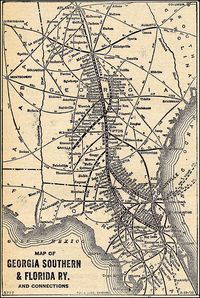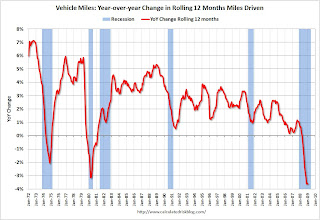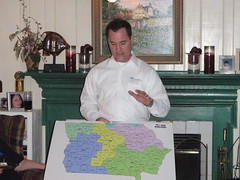In his comments, LaHood tried hard not to criticize Georgia policy makers directly. “I’m not going to pretend to tell Georgia what to do,” he said repeatedly.Ain’t that the truth.But rather than criticize the lack of planning and support for high-speed rail in Georgia, he offered examples of regions elsewhere that “get it.” “The Northeast (high-speed rail) corridor has its act together,” LaHood said. “The Midwest corridor has its act together. The governors there have set aside their own egos and their own ambitions” to work together on bringing high-speed rail to those regions.
LaHood made no mention of the stark contrast to the Southeast, where our governors are too busy posturing to discuss resolution of the ongoing water wars, let alone high-speed rail.
The best part is in a comment:
You see the state legislature wants to control the tax revenues from metro Atlanta so they can spend them in Hahira, Rome, Valdosta, etc., etc. Antwhere but metro Atlanta.Ah, Atlanta! Just more important than anywhere else!
 You know, if Atlanta cooperated in creating a rail plan for the entire state,
such as for example the long-established rail corridor from Chattanooga
through Atlanta, Macon, Tifton, Hahira, and Valdosta to Jacksonville and
Orlando, we might actually get rail in Georgia.
It doesn’t have to all be high speed.
If I could take a regular passenger train to Atlanta, I sure would,
instead of having to drive or squeeze into an ASA toothpaste tube.
You know, if Atlanta cooperated in creating a rail plan for the entire state,
such as for example the long-established rail corridor from Chattanooga
through Atlanta, Macon, Tifton, Hahira, and Valdosta to Jacksonville and
Orlando, we might actually get rail in Georgia.
It doesn’t have to all be high speed.
If I could take a regular passenger train to Atlanta, I sure would,
instead of having to drive or squeeze into an ASA toothpaste tube.
By the way, Ray LaHood has a blog.



